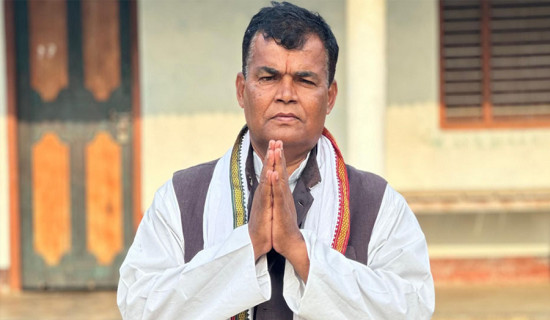- Wednesday, 4 March 2026
Bring An End To Menstruation Stigma
A heart-wrenching story of a 28-year-old young woman, Kamala Aujee, mother of three, succumbing to a snake bite in a menstrual hut sheds light on deep-rooted archaic prejudice in this seemingly modern but, in reality, disturbingly prejudiced society. The heartbreaking story of the young mother is a deeply moving story of an independent woman who, from the revenue she generated from working abroad, had built a home in her hometown. An irony is that she was forced to abandon her own home during her period owing to superstitious, menstrual-related beliefs, which left her vulnerable to animal attack in an isolated menstrual hut. On a surface level, she died from a venomous snake bite, but at a deeper level, it was the illogical beliefs and practices of patriarchal society that proved to be more lethal for her.
Chhaupadi practice is legally prohibited in Nepal; however, it is still practiced unapologetically in every nook and corner of the country. What’s more disturbing is that discrimination on the grounds of period is widely prevalent not only in rural areas but also in urban areas. Deeply rooted in the traditional belief that women are impure during periods, they are isolated in menstrual huts during the times when she is more deserving of love and protection. Many young girls in rural areas have lost their lives owing to the Chhaupadi practice, due to which there have been calls from national as well as international communities to bring an end to such practices. Consequently, there have been some initiatives to eliminate it; however, the story of women like Kamala demonstrates that such practices are deeply entrenched in our society.
Menstrual traditions
Conventionally, education and awareness campaigns were touted as the most powerful tools to fight such biases. Though stigma surrounding menstruation seems nearly universal, numerous menstrual traditions indicate quite different, even opposite, purposes and meanings. In some traditional societies, menstruation practices experienced by females were said to be protective and empowering, offering them a safe space set apart from the male gaze and from unwanted sexual and domestic pressures. In other words, the idea of a menstruation hut could be perceived as impure and taboo or also as a safe, welcome space free from daily chores and undue pressures. As per various studies, some historic cultures consider menstruating women to be sacred and powerful, with strong psychic abilities and strong enough to heal the sick.
Likewise, as per different theories proposed by some cultural theorists, menstruation is placed as a central organizing idea in the creation of culture and the formation of humans' earliest rituals. As per one body of cultural evolutionary scholarship, initially, female coalitions established the idea that menstrual blood marks the body as periodically sacred; however, later with the rise of cattle ownership and patriarchal power, the same idea and beliefs were exploited by religious patriarchs to suppress women.
It’s important to dig deeper and flip the pages of history that regard menstruating women as sacred and powerful. If history is anything to go by, the concept of menstrual huts stemmed not from the notion of impurity but from the belief that women during the menstrual cycle are deserving of rest, free from domestic chores and other undue sexual pressures from their partners. However, over the period, this idea was twisted by the patriarch to dominate women. Consequently, millions of girls and women continue to face discrimination related to menstruation taboos.
The story of our women like Kamala Aujee could soon be forgotten but this ignorance could soon follow other tragic stories if timely action is not taken. With her death, not only her dreams, aspirations perished from the earth but it has also left a life-long impact on her loved ones, especially young children whose lives will perhaps never be the same again. Menstruation stigma can no longer be considered a minuscule issue; it’s simply not enough to show work by demolishing huts or formulating numerous laws and policies, as Chhaupadi practice persists despite such measures.
Proper enactment of laws
The government must ensure the proper enactment of laws, as without proper execution, even the greatest laws become ineffective. Henceforth, in this regard, those committing the crime of perpetuating such malpractices must be charged with a criminal offense. Likewise, local-level leaders must be held accountable and face legal consequences. Apart from that, regular open discussions with teachers, social workers, local leaders and educated people in every community must be held to find ways to normalise menstruation.
It’s imperative to drill sense into everyone’s head that development is not simply about sophisticated infrastructure, high-rise buildings or an educated society, but it's more about creating an environment where every individual has the right to live with dignity, freedom to pursue their aspirations, participate in society and enjoy a good quality of life. The true meaning of development will only prevail when even ordinary people are protected and empowered to shape their own lives.
(The author is a director & chief instructor at Suva Consultancy & Training Institute.)















